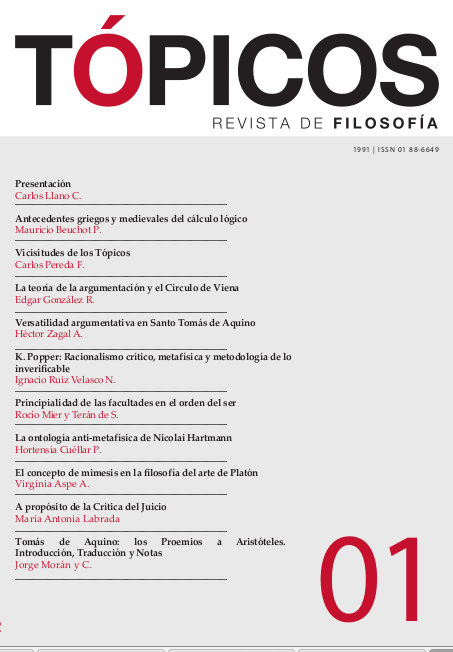Published 2013-11-28
How to Cite
Downloads
Altmetrics
Citas
Abstract
Saint Thomas Aquinas, as other Scholastic philosophers, attended the gnoseological and epistemological problem of the unity of human knowledge when trying to realize a unified reading of the corpus aristotelicum. In the proem In Libros Analyticorum Posteriorum Expositio, Aquinas proposes a new classification of the logical works under an analogical conception of the human knowledge. There he distinguishes the branches of logic according to the acts of reason, and explains the various types of argument: rethorical, poetical, topical, apodictic and theological. This classification exhibits Thomas Aquinas' thesis regarding the problem of the unity of human knowledge: there is a variety of circumstances and events that can not be treated in the same way. The unity of human knowledge is saved by its versatility, and Aquinas is cautelous when not trying to unify the intelectual tasks under the univocity of one and only one argumentative method, thus protecting the epistemological peculiarities of each genre of reality.






